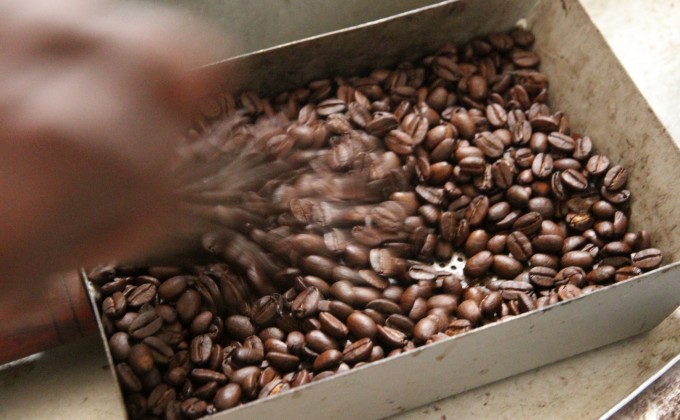Since July 2015, Christian Clément, who is originally from Ottawa, has worked as a Marketing Strategy Advisor to the Peruvian Cacao Producers Association, a non-profit based in Lima that comprises some twenty cooperatives and associations representing 30,000 small-scale producers.
Several months into his one-year mission, Clément had the idea of setting up a trade mission to Canada through the Partnership Brokers component of the Uniterra program. In cooperation with the Uniterra teams in Montreal and Ottawa, he planned and organized the mission and, when the time came, made sure it ran smoothly.
This was not the first visit to Peru for the 38-year-old with a Masters of Geography from the Université de Montréal. In 2006, Clément left Quebec and his job as a local development officer to move to Lima – and to pursue a Peruvian woman with beautiful eyes. For two years, he taught high-school French while learning Spanish. In 2008, he returned to Ottawa with his young family and worked as a program manager for various ministries until 2014, when he accepted a Development and Management Advisor assignment with Oxfam Québec. Ten years after his first mission to Senegal for the Social Economy Forum in Dakar, he joined back up with the Uniterra program.
Where did you get the idea for a trade mission?
Just by realizing that there are very few trade activities between Canada and the cooperatives that we support through the Peruvian Cacao Producers Association. Our idea was to participate in a trade show to raise the profile of local actors, help them find and develop business opportunities and establish ties so they can penetrate the Canadian market.
We decided not to limit ourselves to cooperatives commercializing cacao and coffee but to include ones that process chocolate in order to promote the entire cacao value chain. We selected three cooperative businesses and three women chocolate makers within Uniterra’s zone of intervention. The project, which I started working on late last year, fell into place rather quickly, with very strong interest expressed on the part of the Peruvians.
In addition to participating in the International Food Exhibition (SIAL) in Montreal, the delegation made many other stops for meetings and visits on the trip. Were there other objectives for this mission?
We also wanted to learn as much as possible about the Canadian market in order to gain access to it. We wanted to better understand consumers and the general culture of the country, as well as to learn about aspects of the Canadian cooperative movement, such as the worker cooperative model.
We also simply wanted the Peruvians participants at various levels of the value chain to get to know each other and build bridges. One of the chocolate makers ended up deciding to start producing organic sugar for one of the cooperatives in the delegation.
Peru produces less than 2% of the world’s cacao. Do we really need to be looking for new prospects for these small-scale producers?
It is true that Peru is not one of the world’s larger cacao producers. These are small volumes but production has nearly doubled in the past 10 years. The cacao is very high quality, classified as “fine-flavour cacao.” Their beans have gained world-wide recognition for their flavour. European chocolate makers discovered them about fifteen years ago and have been importing them ever since. Also, most production is organic. Peru is the world’s second largest producer and exporter of organic cacao. The Peruvians are producing a high-quality, niche product. It has to be exported because—and this is an aberration!—the Peruvians are not fine chocolate consumers! They actually eat very little chocolate and mostly prefer sugary candies. The Peruvian Cacao Producers Association is working to develop a national market by, for example, processing cacao locally. But in the meantime, yes, their opportunities are abroad.

Now back in Peru, Clément is happy with the work done to organize and manage the trade mission. The cacao producers and chocolate makers in the delegation have returned home with a list of potential partners who are interested in purchasing their products. Clément is continuing his mandate with the Peruvian Cacao Producers Association, which will soon be organizing the 2016 Chocolate Exhibition in Lima – several Canadian businesses met during the mission also plan on attending! To be continued…
---
From April 9 to 22, 2016, WUSC and CECI hosted 8 partners from Peru, Bolivia, and Guatemala working in the sectors of cocoa, coffee and quinoa. This mission to Canada was organised to help them establish new business relationships, identify potential Canadian customers, learn more about the Canadian market, and receive training from Canadian chocolatiers experts to help them improve the quality of their products. We also strived to exchange knowledge with Canadian experts on cooperatives, giving our Latin American group the opportunity to learn from these models.
Uniterra is a leading Canadian international volunteer cooperation program, jointly managed by WUSCand CECI and funded by the Government of Canada through Global Affairs Canada.
Text: Carole Duffréchou | Photos: WUSC









